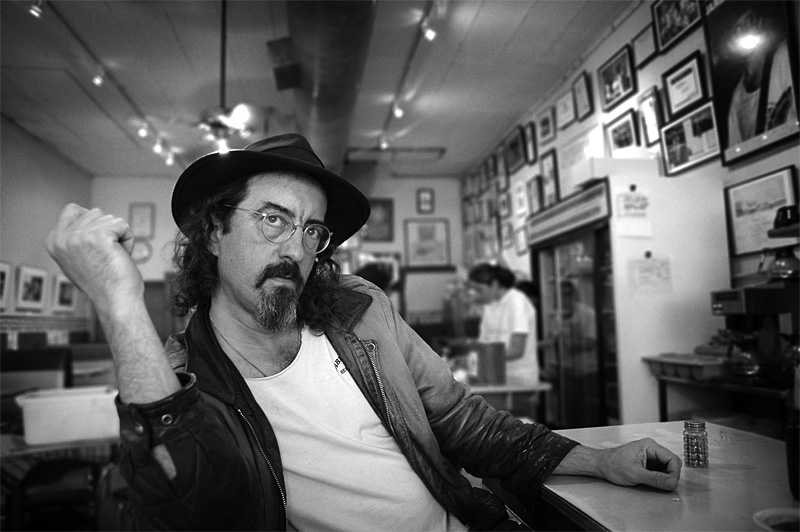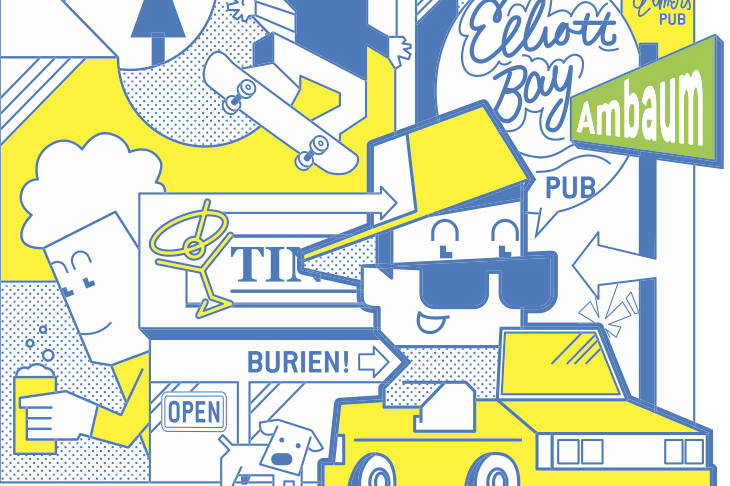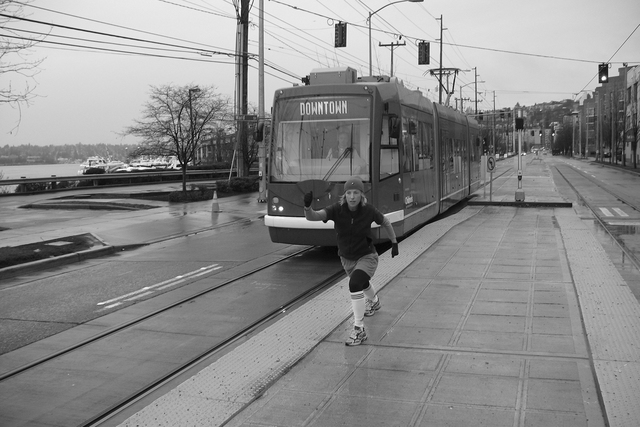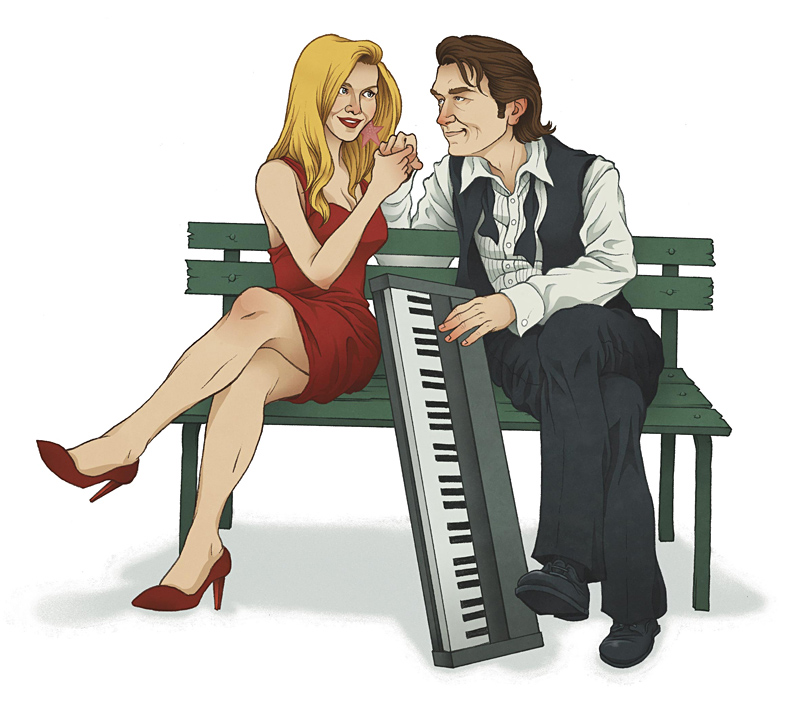In Crazy Heart, Jeff Bridges plays a past-his-prime country singer named Bad Blake, who ekes out a living by playing bowling alleys and saloons throughout the American Southwest. So notorious a lush is Blake that the venues he plays typically refuse to comp him drinks, for fear that he’ll more than double his fee in spirits. This does nothing to deter Blake; in an early scene, he’s gifted a fifth of whiskey by a local liquor-store owner who recognizes him, and proceeds to get so drunk during his set that he must leave the stage to vo-mit out the back door amid one of his signature tunes.
Blake made enough of a name for himself at the peak of his career to still attract a handful of loyal fans to each gig, and keeps his bar tab back home in Houston paid by playing regularly at a buddy’s bar. A brilliant lyricist, what songs of Blake’s became famous were made so by a younger, slicker, more Nashvillian protégé named Tommy Sweet, who used to play in Blake’s band, dubbed Bad’s Boys. Blake has more ex-wives than he can count, and his lone son has no interest in reconnecting with him after decades of absenteeism.
By contrast, the Texan James McMurtry is close to his 18-year-old son, Curtis, who played saxophone on his dad’s most recent studio album, Just Us Kids. Though Curtis’ folks are divorced, they live three blocks apart in Austin, and, unlike Blake and his exes (all of whom, presumably, live in Texas), remain on cordial terms. While McMurtry occasionally drinks beer, he remains stoic onstage, whereas Blake overindulges on whiskey at all hours. There’s no Tommy Sweet in McMurtry’s life, nor could he ever be called a has-been. Never-quite-was is more like it, as McMurtry, the son of famed novelist and screenwriter Larry (Lonesome Dove) McMurtry, has yet to live up to the “next big thing” status bestowed on him when he burst out of the gates with his John Cougar Mellencamp–backed debut in the late ’80s.
But there are similarities between fact and fiction, to be sure. McMurtry, too, is an obscenely gifted songwriter, and Texas has always been a great deal left of mainstream country’s Rocky Top epicenter. Rooting oneself there can lead to legendary status, but rarely riches. Hence, McMurtry, like Blake, gigs constantly; when he’s home in Austin, McMurtry plays every Wednesday at midnight at the 210-capacity Continental Club.
“That was [the time slot] that was available in 2002 when I took it,” explains McMurtry matter-of-factly (everything he utters in his droll baritone could be described as “matter-of-fact”). “There are a lot of frat kids [in Austin] with disposable income. It’s kind of a good exercise; you don’t get a sound check or anything, you just get up and go. A lot of people come to Austin and they all go to that club. It’s a world-renowned little-bitty club.”
Both Blake and McMurtry could be described as seasoned, critically lauded, underappreciated Southwestern troubadours, seemingly unruffled by the brevity of their time in the limelight. The closest McMurtry got to such stardom was in 2005, when his workingman’s protest song, “We Can’t Make It Here,” made a strong showing on the Americana charts. With this, pundits and supporters—Stephen King most prominent among them—declared McMurtry primed for a middle-aged breakthrough along the lines of Lucinda Williams’ in the ’90s (another musician with a literary lion, the poet Miller Williams, for a father). But despite a well-received follow-up album stacked to the hilt with anti-Bush anthems, such fortune hasn’t come to pass.
“It’s not like I can put a song out there that’s going to break me to a higher strata. It’s really grunt work, mostly. Sometimes you get an accident like ‘We Can’t Make It Here’ that connects with a lot of people, but you can’t do that as an act of will,” McMurtry says, before assessing his current station. “Certainly I want to play larger venues; it’s all about growth. The problem is, at the next level [1,000-plus-capacity venues], it’s really hard. You have to sell out every night or everybody loses.”
While he’ll appear at the Tractor this Sunday with a full band, McMurtry plays more solo gigs these days—for “more money,” he admits. “Dave Alvin would tour a market with his band and go through the same market solo and play to a completely different crowd,” says McMurtry, who keeps his touring apparatus as lean as possible, traveling in a van. “The road is not healthy, but we’ve done it long enough to know where the Indian restaurants are now. We’ve been known to drive into towns that aren’t stops on the tour just to avoid eating at McDonald’s. It’s the food out there that really kills you.”
Indeed. In Crazy Heart, Bad Blake ingests whatever fare—typically of no higher quality than Salisbury steak—is supplied by the venue he’s playing. And on one drive the morning after a gig, he rolls his truck. The accident doesn’t kill him, but it could have—and the food sure as hell didn’t help.
When McMurtry telephones his dad every couple of weeks, they “don’t talk about work,” says James. Instead, their conversations center on “uncles, aunts, cousins, and firearms.” But this doesn’t mean the two don’t feel an appreciation for each other’s art.
“I read most of his stuff, and he listens to most of mine. ‘Choctaw Bingo’ could go in a [Larry] McMurtry book,” says James, referring to his epic song about the pressure-cooked existence of Dust Bowl meth-peddlers.
While James’ forays into politically charged songwriting have earned him his most widespread attention, they’re far from his strength as a songwriter. Rather, the yarns he spins most successfully often involve the everyday struggles of downtrodden characters who live a few miles from freeway exits in the middle of nowhere. Those people make great characters, but don’t buy too many records.
When McMurtry assembled the track list for 2009’s Live in Europe, he eschewed the partisan tunes, instead packing the album with the sort of dark-shaded character studies that have kept his fan base both devoutly passionate and extremely limited. It’s precisely the sort of move Bad Blake would make. McMurtry is to Texas as Mellencamp is to Indi-ana or Springsteen is to Jersey—only with a sliver of the fame and none of the willingness to pander.








